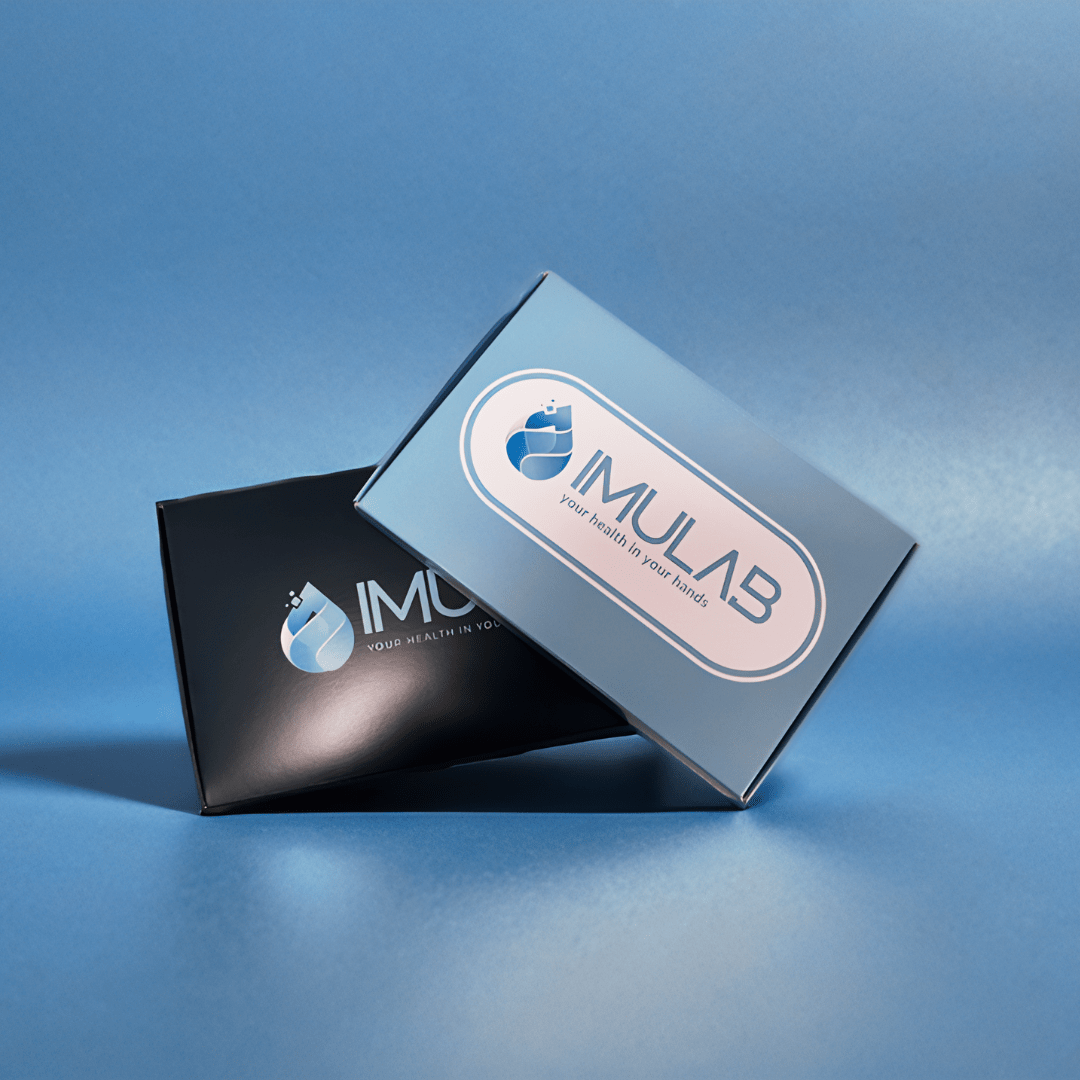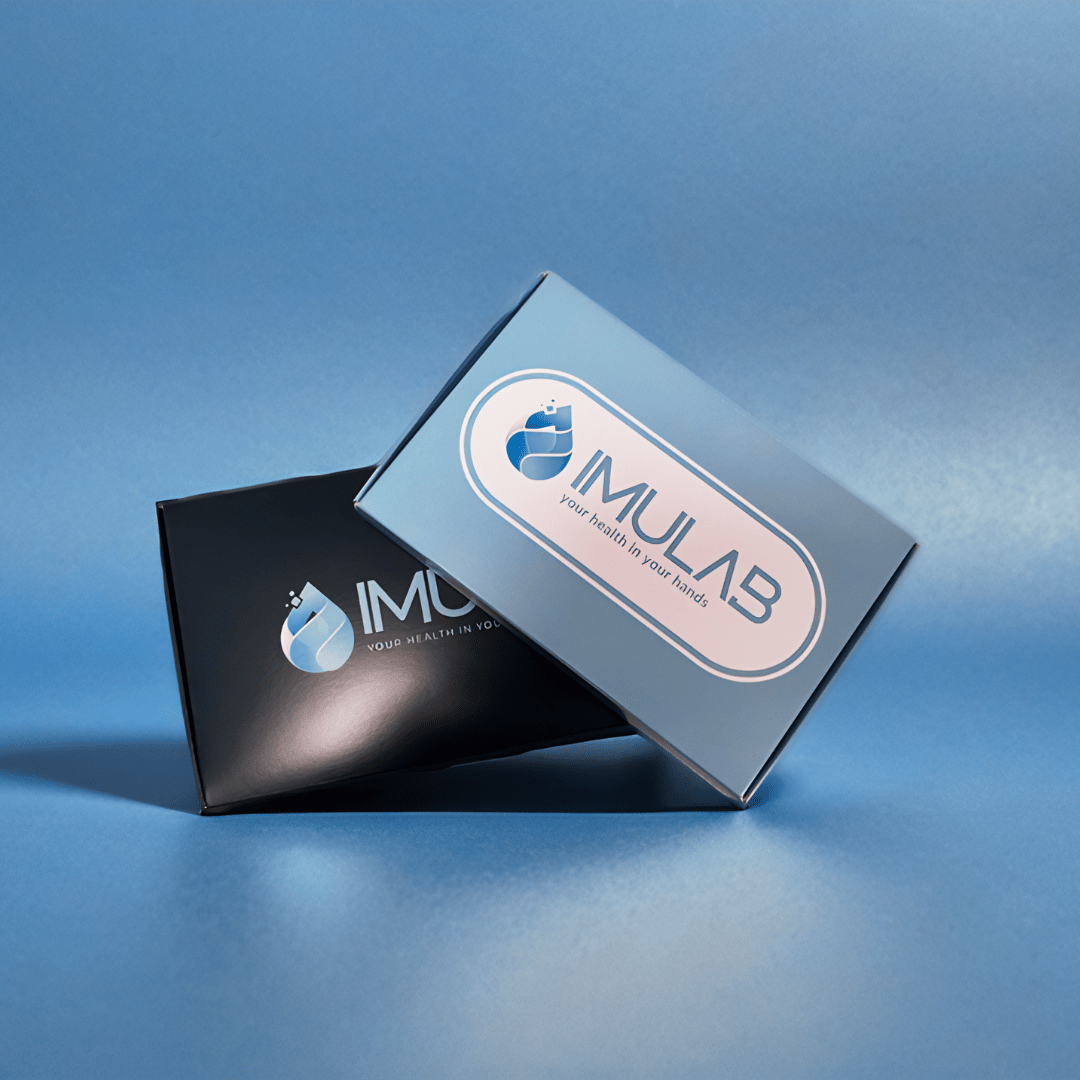IMULAB
Female Hormone Complete
Female Hormone Complete
How do you want to take your sample?
Please choose one option below-
Collect your own sample at home Free
Self sampling kit containing everything you need to take your own finger prick blood sample sample at home.
-
Sample collection at a Superdrug Clinic +£35.00
Visit one of Superdrug's clinics across the UK where a healthcare professional will take your sample from a vein in your arm. We’ll email you instructions on how to book after we’ve processed your order.
-
Sample collection at home with a nurse +£59.00
Book an appointment for one of our nurses to visit your home and take your blood sample from a vein your arm.
-
Sample collection with your own healthcare professional Free
Make an appointment with a healthcare professional of your choice to have your venous blood sample taken. You will be responsible for arranging your appointment and any additional fees.
Couldn't load pickup availability
✅ Results expected within 2 working days
Assess your hormonal health with our Comprehensive Hormone Panel, designed to check key female hormones, adrenal function, and thyroid health for a clearer picture of your well-being.
Why choose this test?
If you're experiencing symptoms like fatigue, mood swings, weight gain, or changes in your menstrual cycle, a this may help you identify the underlying cause. This test is also helpful if you're planning to start a family and want to check your fertility or if you're experiencing symptoms related to menopause or andropause.
Our Comprehensive Hormone Panel includes tests for FSH, LH, oestradiol, progesterone, testosterone, DHEA-S, cortisol, TSH, free T3, free T4, and thyroid antibodies. By measuring these hormones, you can get a clear picture of your endocrine health and identify any imbalances that may be affecting your overall well-being.
Book an appointment today with our partner clinics at Superdrug for a venous blood sample. Alternatively, you can choose to have one of our nurses or your own healthcare professional take your venous sample in the comfort of your own home. Results are normally available within 2 working days from receipt of your sample at our laboratory and delivered directly to you through our secure online patient portal.


What's included in this test?
Hormones
FSH
LH
Luteinising Hormone (LH) is a hormone produced by the pituitary gland that plays a crucial role in male and female fertility. In females, LH levels increase sharply around the middle of the menstrual cycle, causing ovulation to occur. It is also responsible for the formation of the corpus luteum, which produces progesterone to prepare the uterus for pregnancy. In males, LH stimulates the production of testosterone in the Leydig cells of the testes, which is essential for the development of male reproductive organs and secondary sexual characteristics.
Oestradiol
Oestradiol is a steroid hormone that is primarily produced in the ovaries of women and to a lesser extent in the testes of men. It is one of three types of estrogen and has important functions in regulating the female reproductive system, as well as promoting breast tissue growth and maintaining bone density. Oestradiol levels naturally fluctuate throughout the menstrual cycle, peaking at ovulation in pre-menopausal women. As women age, their oestradiol levels decrease and eventually stop altogether with menopause. Low levels of oestradiol can lead to symptoms commonly associated with menopause such as hot flushes, night sweats, and mood swings. Additionally, low levels of oestradiol can increase the risk of developing osteoporosis.
Testosterone
Prolactin
Prolactin is a hormone that is synthesized in the pituitary gland and is involved in the regulation of reproductive functions. Its main function is to stimulate lactation after delivery, and it is common for prolactin levels to increase substantially during pregnancy and breastfeeding in women.
Free androgen index (FAI)
The free androgen index (FAI) is a calculated value that estimates the level of biologically active or "free" testosterone in the blood. Testosterone is an androgen hormone responsible for male sexual characteristics and is also present, although in smaller amounts, in females.
The FAI is determined by dividing the total testosterone level by the level of sex hormone-binding globulin (SHBG) and multiplying the result by 100. SHBG is a protein that binds to testosterone and other sex hormones in the bloodstream, limiting their availability for biological activity.
Thyroid hormones
Thyroid stimulating hormone (TSH)
Thyroid stimulating hormone (TSH) is a hormone produced by the pituitary gland that regulates the production of thyroid hormones thyroxine (T4) and triiodothyronine (T3) by the thyroid gland. TSH levels increase when thyroid hormone levels are low, and decrease when thyroid hormone levels are high. Abnormal TSH levels can indicate problems with the thyroid gland, such as under or overproduction of thyroid hormones. It can also be a result of pituitary gland disorders.
Free thyroxine
Thyroxine (T4) is one of the two primary hormones produced by the thyroid gland. It plays a vital role in regulating metabolic processes in the body. T4 is mostly bound to carrier proteins in the blood, and only a small amount of it exists in its free or unbound form. In contrast to free T3, free T4 is relatively inactive, but it is still essential for normal body function. When the body requires thyroid hormone, free T4 is converted to the more active form, free T3.
Free T3
Triiodothyronine (T3) is a thyroid hormone produced by the thyroid gland that plays a crucial role in regulating metabolism. The majority of T3 in the bloodstream is bound to protein. Free T3 is the portion of T3 that is not bound to protein and is considered the biologically active form of the hormone that can regulate metabolism. Measuring free T3 levels is important in diagnosing and managing thyroid disorders.
Autoimmunity
Thyroid peroxidase antibodies
The thyroid gland produces thyroid peroxidase, an enzyme that plays a vital role in converting T4 to the biologically active T3. This test is designed to detect the presence of antibodies to thyroid peroxidase, which suggests that the immune system is attacking the thyroid gland and interfering with its normal function.
Thyroglobulin antibodies
This test aims to detect antibodies to thyroglobulin, a protein that is exclusive to the thyroid gland. Normally, thyroglobulin remains confined within the thyroid gland and does not enter the bloodstream. However, if the immune system attacks the thyroid gland, as in the case of inflammation, thyroglobulin may be released into the bloodstream and antibodies can be identified. The majority of thyroid disorders result from an autoimmune disorder where the immune system attacks the thyroid gland. In Graves' disease, this causes the gland to produce an excessive amount of thyroid hormone, while in Hashimoto's thyroiditis, the immune system gradually destroys the cells of the thyroid gland, leading to a reduced production of thyroid hormone.
Proteins
sex hormone binding globulin (SHBG)
SHBG (sex hormone binding globulin) is a protein produced by the liver that binds with sex hormones such as testosterone, estrogen, and dihydrotestosterone (DHT) in the bloodstream. When hormones are bound to SHBG, they become inactive and are not available for use by cells. Measuring the level of SHBG in the blood can provide important information about the levels of free or unbound hormones, which are biologically active and available for use.
Sampling special instructions
Prepare for your Advanced Female Hormone Blood Test by following the instructions contained within your test kit. It is advisable to collect your sample before 10 am. If you have regular menstrual cycles, schedule the test between two to five days after the beginning of your period, ideally on day three. In the absence of menstrual cycles, the test can be taken at any time. Please note that hormonal contraception can impact the test results, and to obtain more accurate readings, consider discontinuing hormonal contraception and using barrier contraception instead.
Take the test before consuming any medication or vitamin/mineral supplements. Refrain from taking biotin supplements for at least two days prior to the test, and consult your doctor if biotin is prescribed to you. If you use hormone gels, pessaries, patches, or tablets, it is recommended to opt for venous sample collection to minimize the potential for contamination that may occur with finger-prick tests. In case you have been in contact with hormone supplements, ensure that your fingers have not been exposed to them for at least four weeks before the test, as hormones can be absorbed deep within the skin and persist despite rigorous handwashing. By following these guidelines, you can ensure reliable and accurate results for your Advanced Female Hormone Blood Test.


